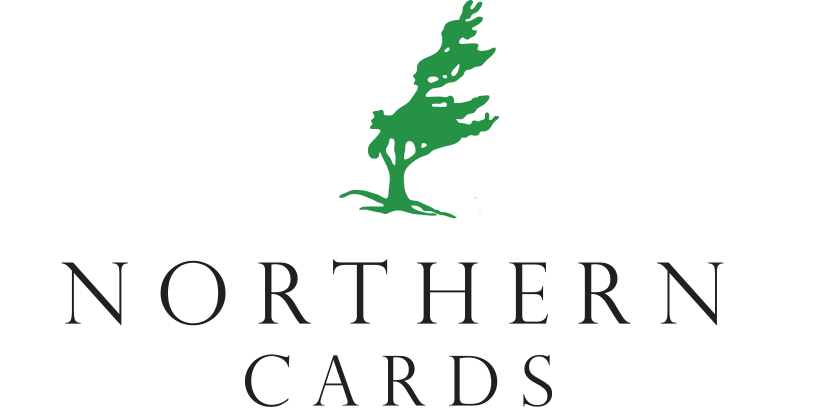How to Get Your Greeting Card Published
Written by Jean-Paul Michael
If you're a budding artist or illustrator who would like to design your own greeting cards, it may well be useful for you to know how to get them published. Having worked in this line of business for more than 30 years now, in various capacities, I have first-hand knowledge and experience of dealing with many designers myself. I have sifted through many emails and letters from those who would like to see their work in print, helped choose the right designers for our line, and worked together with many of them from start to finish, so I wanted to share some of the steps you will be taking on this journey to get your greeting card published.

Step 1: Do your research
You need to identify the right publisher for your work. For example, in Northern Cards' 30-year history, we have never published a single photographic card. In that period, without exaggeration, I must have been sent more than a thousand photographers' submissions; my point being that you should cater your submission to only the publishers who currently produce cards that are compatible with your work. There are many amazing publishers who publish photography cards, we just aren’t one of them. There is absolutely no point wasting both your time and a publisher's time by submitting work which isn’t suitable to their line.
Additionally, we often hear from customers and recipients that our cards have brightened someone's day, that a design has warmed their heart, or a verse has meant more than their own words could. This is why our selection process (and that of other publishers) is highly important, as our cards speak to our customers and the recipients, and an artist's work is a huge part of this.
One of the most common questions that I get from artists is this: Do I need to submit the words with the artwork? While some publishers have different policies on this, I have never heard of a publisher rejecting a great piece of art because you gave them the finished concept including the verse. We often may not use your verse, or we may have our own verse. However, we are always grateful to see the completed concept including the verse.
Generally speaking, it’s best to include a good number of your designs and not just one. I would recommend including as many as twenty designs. To me, there was nothing more frustrating than when I would pitch a particular artist to my boss, when the artist had a design that I truly believed in, and which I thought would be the next bestseller. Then my boss would say, “Yes, I love the look, but do they have other pieces? I don’t like the words.” When an artist had submitted a varied range of their work, I was much more likely to get a particular artist published, more so than when I was simply given one or two designs.
Step 2: Working with the publisher
The publisher is interested, so what next? Sometimes, it’s a simple, straightforward process where they love one of your pieces of art and they want to purchase it. I hesitate to speak for other publishers, but it’s generally a much longer process than you'd think. Publishers need something that is catered precisely to the niche they are trying to fill, so try your best to be as accommodating as possible. In our case, you will most likely be working with someone who isn’t the final decision-maker. As I mentioned earlier, when I thought I had a winner, that didn’t always mean my boss agreed. So try and be patient and also be prepared for multiple revisions of your work.

Step 3: How do you get paid?
Well, first things first. If you are an established artist, you have likely already figured this out. There are very few artists in the greeting card business who get rich. That being said, there’s no reason why you shouldn’t be treated equitably and paid fairly for your work.
I am going to suggest you check out the Illustrators Partnership of America, the Greeting Card Association and The Association of Illustrators (the latter two are UK-based). While they are paid membership organizations, there are a number of free resources which you might find useful, particularly on the American site. They both provide a practical guide and address legal matters which are relevant to illustrators and artists.
If you are paid a one-time fee, the publisher makes a single payment for ownership of your design, without any limitations as to how or where this piece will be used or for how long. If your work has never been published before, this is generally the type of arrangement you should expect. I have seen artists be paid as little as USD $60 and as high as USD $600 for a design.

In terms of licensing instead, this allows the publisher a time-limited period to use your artwork for a specified purpose in a specific geographical market. Once that time period is completed, you are free to either renegotiate with that publisher or find a completely new publisher to license that work.
What about self-publishing?
You may well be thinking of self-publishing your own work instead of approaching greeting card publishers with your designs. Self-publishers often market their cards at art galleries and exhibitions or in independent shops or market stalls, but there is also a growing trend online, on sites including Etsy, as I mentioned in my blog post My Ultimate Guide to Canadian Greeting Card Publishers. We'll be writing about the challenges of self-publishing in the future too, so keep an eye out for that article.
When you're looking to get your greeting card published, the key is in being patient. You’re not likely going to get rich doing this but do keep trying because it is certainly one of the most gratifying forms of publishing, especially when you see your own hard work in print and on sale.
Author Bio
Jean-Paul Michael has spent his entire adult life in the greeting card industry. He co-founded Northern Cards when he was 18 years old and over the last 3 decades, he has held many varying positions in the company. Today, he is proud to be Northern Cards' Publisher and a lifelong greeting card geek.









Reading this has been an education, thanks, much appreciated…now back to my drawing board.
Fabulous, informative piece. Thank you!
Terrific content here, thank you for this!